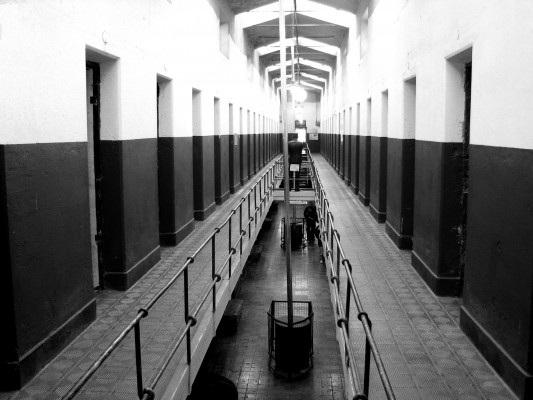Prisoners Are Entitled to Basic Human Rights
October 3, 2013

(Luis Argerich/Wikipedia Commons)
Orange is the New Black, the hit Netflix series starring Fordham College at Lincoln Center’s (FCLC) own Taylor Schilling FCLC ’06, sheds light on many issues faced by female prisoners. The show covers topics from sexual assault to violence to inmates’ right to their medication. Due to the show’s explosive popularity, many of us have now been exposed to some of these grievances that many real-life inmates are subjected to—inmates such as Taylor Gilmer.
Gilmer is a prisoner at the Virginian Women’s Facility who suffers from Type 1 diabetes, a normally very treatable and manageable disease. However, her diagnosis could become fatal because the health services in her facility refuse to give her access to the medications she needs to survive. It is absolutely disgraceful and honestly disgusting, that the United States allows this to happen in the year 2013. All Americans, including those who have committed crimes, are entitled to basic civil rights. Among these civil rights is the right to health care, especially if the person’s health needs can be solved rather simply. If the facility cannot care for a specific inmate’s health needs, the inmate should be transferred to a facility that can adequately serve them rather than just leave them to die.
Refusing health care to inmates and making their conditions fatal seems more like an unfair, unconstitutional version of the death penalty—not to mention, a greedy one at that. Gilmer and countless other inmates can’t get the health care that they need due to the large scale privatization of medical services in prisons in the United States. The interests of the incarcerated are barely taken into consideration when the state makes the decision for prisons to go private. It is not only inhumane, but it is also a violation of the rights of prisoners on every level. The government simply wants to lower costs spent by the prisons and, in turn, maximize their profits. With this system, prisoners are left in unsafe conditions, mostly due to their lack of care and supplies. As Obamacare begins to take effect, however, I believe that this will soon change. According to the Center for Health Care Strategies, 6-7 million inmates are more likely to qualify for Medicaid and prisoners could represent 30 percent of the 2014 Medicaid expansion. Prisoners may finally be given proper healthcare and, most importantly, their dignity.
Gilmer’s story in particular has received a great deal of media attention recently, and some argue that this is solely because she is an innocent looking, Caucasian female. Had she been a woman of color, the story might have fell under the radar. While unfortunately that may be true, the issue at hand is not so much about race but about basic human rights such as health care for all inmates—regardless of their crime, sentence, gender, or race. It doesn’t matter why the story gained the public’s attention; the important thing is that it did. At only 22 years old, Gilmer is losing her eyesight and her feet are turning blue due to poor circulation—common symptoms of diabetes when it is left untreated. She is now considered to be of generally poor health, which was not the case before she arrived at the Virginian Women’s Facility. But she is a strong woman, and with an army of 1,200 other inmates behind her, she is ready to fight like hell for what she and all other prisoners are entitled to.













